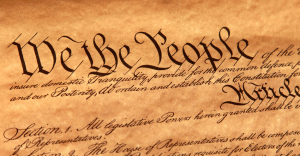 For today’s law enforcement officer his or her cellphone/smartphone has become just as much a part of their personal gear as their sidearm and handcuffs. Officers routinely use their phone to call in reports, take pictures of accident and crime scenes, even to email witnesses. At the same time, some us them to send distasteful text messages, call their spouses, surf the web, and store pictures of family and friends. A cellphone is no longer just a tool, it has literally become an extension of their on and off-duty life.
For today’s law enforcement officer his or her cellphone/smartphone has become just as much a part of their personal gear as their sidearm and handcuffs. Officers routinely use their phone to call in reports, take pictures of accident and crime scenes, even to email witnesses. At the same time, some us them to send distasteful text messages, call their spouses, surf the web, and store pictures of family and friends. A cellphone is no longer just a tool, it has literally become an extension of their on and off-duty life.
Privacy Desired
Given the types of information likely to be found stored in the many different files of the average officer’s phone, it is highly unlikely that they would want anybody such as their supervisor, a member of internal affairs, or any type of criminal investigator to see what they have stored. However, it has become very common for these people to want access to this information in order to investigate both internal and external complaints as well as to help substantiate or disprove any complaints of criminal behavior. The result of this confusion is that more officers are asking if their cell phones are susceptible to inspection. The answer is not as easy as you might think.
According to the Tenth Circuit, a determination has not been made as to whether a police officer’s cell phone is protected by the Fourth Amendment. Yet at the same time since a personal computer is protected by the Fourth Amendment and today’s smartphones are essentially miniature computers, it may be that they are offered this same level of protection.
Possession Indicates an Expectation of Privacy
Much like anything that may contain evidence or any type of information, the amount of protection afforded to it may be dependent on how much of a degree of privacy the officer in question seems to outwardly exhibit. In most cases, it appears that simply having a cell phone in one’s possession seems to be enough to give rise to the idea that there should be a certain amount of protection and privacy, even if the phone is provided by that officer’s department rather than being a personal device.
However, just because the phone might be protected under the Fourth Amendment, doesn’t necessarily mean that the officer’s employer does not have the right to access it. In fact, they may have the right to review the contents of the phone in the event of an investigation into misconduct that is work-related or for non-investigatory purposes, providing their inspection is deemed “reasonable”.
This idea of “reasonable”, gives the officer’s employer a lot of latitude with regard to this type of invasion of privacy. In certain instances, the employer may even be able to compel the officer to allow them to access their cell phone. The best way to avoid this type of situation, is to avoid is to ensure you do not record personal information on it and that if you are asked to turn it over for investigation, you politely decline and seek legal counsel.
